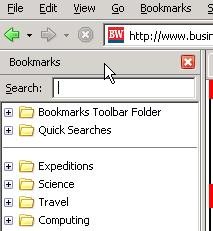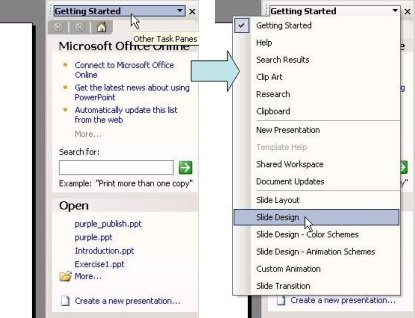Friday, April 28, 2006
Computers with Mactel hardware?
Tuesday, April 25, 2006
Darwine on Mac OS X
Steve Ballmer foresaw it when he chanted "developers, developers, developers, developers" - unless developers use the new Vista features, the platform will die because it does not offer considerable user interface improvements in the way that OS X increments do (Exposé, Spotlight, etc.)
Friday, April 21, 2006
Windows XP API in Mac OS X 10.5?
So here we would have a company that used to sell its hardware because the hardware supported a unique, user-friendly OS that everybody wanted, changing into a company that sells good hardware (I doubt XP apps would be supported in Macish way (menu bar at top etc.) But then Cringely claimed in his previous column that Sony would beat Apple on delivery time, so what's happening here? Is Apple's demise in the wings? Can they survive on the quality of Mail and Preview alone (which I think will not be included in the OS X compatibility kit for Windows)?
Tuesday, April 18, 2006
The advent of the mount virus
Gartner last week published an advisory stating that Mac OS X is at no additional risk from viruses through dual booting. While it is correct that current Windows viruses cannot infect Mac OS X on a dual boot system, it is also true that there are a lot of open code bases that include a plethora of file system drivers that could be ported to Windows by ambitious virus authors. It is also true that an OS can usually be identified by the file system it's on, for historical reasons not worth going into.
The best advice, as always, is to use your insecure OS (yes, Windows) only on virtual machines.
Update 25/04/2006:
Looks like we may be skipping the dual boot virus stage and heading straight for VM rootkits. This seems to be in line with rumours that Apple's next operating system release will have a virtual machine to run Windows and Linux operating systems as guests, included.
Update 02/05/2006:
Finally someone hears me.
Update 11/10/2006:
Link - link - somewhat related topic
Sunday, April 16, 2006
Microsoft and Beagle
However, luckily for us, it seems that Microsoft is temporarily preoccupied with figuring out what Apple are up to, and it can be hoped, although should not be assumed, that the Microsoft vs. Mono debate will never resurface.
How Apple can catch up with Linux
- Paste action of middle mouse button (yes, Mighty Mouse is the right direction).
- One-click responsiveness of windows not belonging to the currently active application.
Finally, Finder really needs a big update now that encompasses Spotlight functionality (more file info in Spotlight, instant conversion of Spotlight searches to Smart Folders), but I believe this is in the works for Leopard already.
Finally, by making Windows apps run on OS X, or OS X apps on Windows, Apple could grab some of the Windows-entrenched niche markets such as those tied to Windows-bound GIS and CAD applications and traditionally relying heavily on superior workstation processing power.
Landslide towards Apple
At the other end of Apple's business, there is a risk of losing mp3 player market share unless they can revitalise their range with colourful models to mimic the appeal of the iPod Mini. Note the negative knock-on effect this could have on their iTunes Music Store. France has taken a lead in asking Apple to unlock iTunes for other mp3 player manufacturers, and further countries are likely to follow. In fact, Apple's losing mp3 player market share may force such a move of the company's own accord to keep the store alive. I very much doubt it will come to this, but it is clear that Apple has to continue remaining competitive on price and innovation, especially since in spite of their promotion of podcasting, this has remained a niche market.
How Microsoft can save their ass
Here are a few suggestions:
- expand the shell capabilities (find, grep, easy batch processing etc.)
- include an installer/updater interface that allows installing commercial software (similar to iTunes Store; the precedent has been set; customer acceptance could be high if it wasn't Microsoft...) at a button press, including upgrade deals for installed software; that also allows updating all applications to newest version, not just Microsoft ones; that allows downloading/compiling newest FOSS software (Gnumeric, Abiword, Gimp, Gaim, XChat, etc.) at the press of a button (yes, include a compiler free of charge!)
- one single version priced at 99 USD to compete with Apple's OS pricing and eliminate customer confusion
Note that all of these points are about the user experience rather than the raw processing ability, whereas many Microsoft innovations due to arrive with Vista address the latter (e.g. WinFS). Also note my upcoming post about Apple.
Friday, April 14, 2006
Photography: perfect picture vs. artistic freedom
This rift is not reflected in the current marketing strategies for cameras. Models are not sold separately to the two groups, and cameras come with a plethora of modes, an easy-to-use all-manual one often being absent. And there are other niceties that I can't seem to find - how about, for instance, an SLR camera whose lens automatically opens when you pick it up (or not if you switched off that feature)?
Wednesday, April 12, 2006
Apple's motivation for BootCamp?
He did it to finally castrate Redmond's last stranglehold on Apple; to wit, "Office:mac." (sic) No longer would Apple be subject to the MBU's whims, threats, foot-draggings and feigned indifference to gain leverage and force Apple to do its bidding. The impetuous, jealous and child-like Bill Gates made truck-loads of cash peddling the horrendous (but vital to millions because, as Chef Joanna says "it's what everyone else uses") Office to Mac users, but it's not like he needed the money. No, it did something much more entertaining for Bill- it gave him power over Steve. Now, if Microsoft folds up the MBU tents (takes its ball and goes home), who cares? Windows can be run on a Mac, along with Office or any other crappy-but-necessary Windows "proggie."Source
Robert Cringely has a different take on things. He sees Microsoft as the only immediate beneficiary, but danger is in the wings:
I predict that Apple will settle on 64-bit Intel processors ASAP (with FireWire 800 please), and at that time will announce a product similar to Boot Camp to allow OS X to run on bog-standard 32-bit PC hardware, turning the Boot Camp relationship on its head and trying to sell $99 copies of OS X to 100 million or so Windows owners.Source
The only other time that I read Cringely, he postulated a merger of Apple and Intel, one that we have yet to see. Also compare with my earlier post on the future development of the operating systems market.
Sunday, April 09, 2006
Biggest drawback of web applications: slow load times
The JavaScript could be cached as a separate file by the browser, and the rest should probably be static or cached on the server. In fact, this is a good example of where user event-based caching can be used. Each user has a namespace of urls, which I will call userspace, that he or she can access only after logging in. Hence, these pages can be generated and loaded into cache when the user enters, and purged when he or she logs out, or if the user becomes inactive and there is competition for memory on the server.
But to back away from the technical for a moment, what we are seeing is competition between bandwidth and small footprint of web applications on the one hand [1], and processor speed and application efficiency for desktop applications on the other. It's still a question of time before the web wins out completely, and the browser becomes the operating system.
[1] Don't worry about the servers - they'll be up to scratch if the demand and competition are there (user demand for web services; competition for speed of delivery).
Saturday, April 08, 2006
Sidebar design done right
Now compare this to how it looks in Firefox:

The search bar is a nice touch and somewhat redeeming feature, but having fast navigation between different sidebar options would be even better!
Update 24/04/2006:
The All-In-One Sidebar Firefox extension looks like a good alternative solution, although I've yet to test whether it will accommodate Document Map, which, to add annoyance, is broken in the current Firefox release (1.5.0.2).
